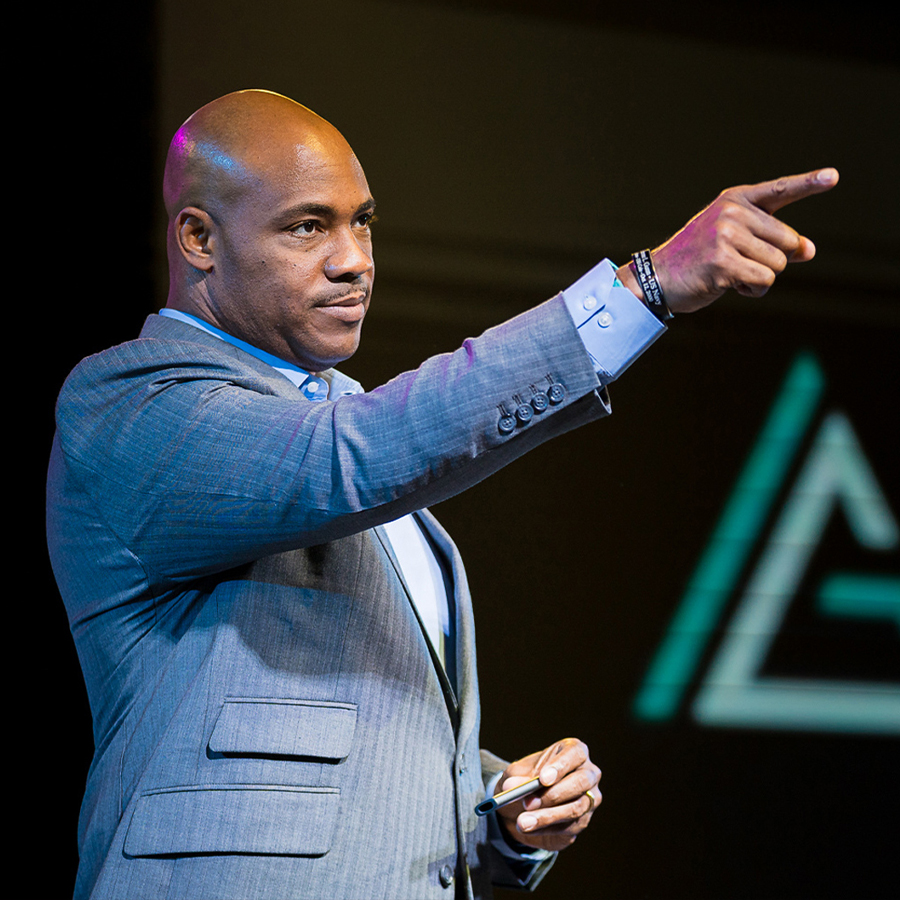- Mr. Shipman has a long history of social security work, both on committees and on capital hill.
- He gives insightful keynotes on personal finance, a must see for any person looking to improve their future financial security

Leading Authority on Social Security Reform
For IN-PERSON EVENTS, the exact fee falls within the fee range on this page, unless this is a “Call for Fee.”
For VIRTUAL EVENTS, the fees can vary depending on how the presenter is used (example: virtual keynote, workshop sessions, multiple video messages, etc).
To learn the exact fee, complete the “Check Availability” form or call us (at 973-313-9800), email us at info@eaglestalent.com, or chat with one of our team members on LiveChat.
We look forward to helping you.
Leading Authority on Social Security Reform
For IN-PERSON EVENTS, the exact fee falls within the fee range on this page, unless this is a “Call for Fee.”
For VIRTUAL EVENTS, the fees can vary depending on how the presenter is used (example: virtual keynote, workshop sessions, multiple video messages, etc).
To learn the exact fee, complete the “Check Availability” form or call us (at 973-313-9800), email us at info@eaglestalent.com, or chat with one of our team members on LiveChat.
We look forward to helping you.
William G. Shipman is Chairman of CarriageOaks Partners, LLC a Massachusetts-based consulting firm specializing in retirement finance. An advocate of Social Security reform in the United States, Mr. Shipman has testified before the House Ways and Means Sub-Committee on Social Security and co-authored Promises to Keep: Saving Social Security’s Dream. He is Co-Chairman of the Cato Project on Social Security Choice, and was on the National Advisory Board of “Americans Discuss Social Security,” a non-profit organization funded by the Pew Charitable Trusts to generate informed debate on the issue. He also served as a delegate to the White House Conference on Social Security. His research has been published by the Financial Analysts Journal, The Journal of Investing, The Wall Street Journal, The National Center for Policy Analysis, The Heritage Foundation and the Cato Institute, as well as numerous other publications, and was named one of its outstanding papers by The Journal of Investing.
Mr. Shipman has discussed and debated public policy issues before the United Nations and both the Joint Economic Committee and House Budget Committee Task Force on Social Security of the United States Congress, as well as the Australian Parliament. He has given well over 300 speeches across six continents and twenty-one countries and has consulted on retirement finance reform with government officials from Australia, China, Poland, the United States and Russia as well as the European Commission. He was invited by the government of the Russian Federation to be a member of its Supervisory Council for the Institute for Social Insurance Development. And the Ministry of Labour and Social Security of the People’s Republic of China has invited him to be a visiting professor at the Ministry’s Social Insurance Institute. The government of China has also published Promises to Keep in Chinese.
Prior to establishing CarriageOaks, Mr. Shipman spent more than 30 years in institutional financial research, consulting and investment management. He was a principal of State Street Global Advisors, a Trustee of the SSgA Funds, a founding partner of H. C. Wainwright Co., Economics, and a general partner of H.C. Wainwright & Co. He served on the Board of Directors of The Institute for Research on the Economics of Taxation, Washington, DC. William G. Shipman received his degree in psychology from Syracuse University. A pilot and student of the martial arts, Shipman holds a 3rd Degree Black Belt in Kempo Karate.
The current debate on entitlement reform is just the latest chapter in the epic shift of responsibility from the individual to the collective that has taken place over the last 80 years. The first chapter was the advent of Social Security in 1935, followed by others including Disability Insurance in 1956, Medicare and Medicaid in 1965, prescription drugs in 2003, and the Patient Protection and Affordable Care Act of 2010. The shift of responsibility to the collective is global, it presages world events, and it is particularly well established in Europe.
The shifting of responsibility normally is caused by a shock or crisis such as a war, depression, natural disaster, or a terrorist attack. The government responds to the shock, and in doing so takes on responsibility and power that it did not have prior to the shock. Its power may recede when the shock is over, but normally not to its pre-shock level. The process repeats with each subsequent shock causing, over time, a ratcheting up of government control.
A classic case of this phenomenon is Social Security. In its case the shock was the Great Depression. Roosevelt responded to the crisis in his 1935 State of the Union Address:
Closely related to the broad problem of livelihood is that of security against the major hazards of life. I shall send to you in a few days definite recommendations [that] will cover the broad subjects of unemployment insurance and old-age insurance, of benefits for children, for mothers, for the handicapped, for maternity care, and for other aspects of dependency and illness where a beginning can now be made.
The shifting of responsibility thus started. When the depression was over, Social Security didn’t end, in fact it has expanded to the largest government program in the world, and to the point where most all retirees are now dependent on the collective. And the government writes the rules—mind-boggling in their complexity—thereby reducing individual choice and freedom.
And now the Baby Boomers, 77 million strong, are beginning to understand how this will affect them. They are sailing into a perfect storm that will challenge them as they never expected. They and their children are in for the financial fight of their lives.
Boomers are confronted with three major obstacles: The Great Recession and its tepid aftermath, the recent collapse of global capital markets, and entitlement debt that is not only unaffordable, but unfathomable.
The recession and its high unemployment have caused many seniors to lose their jobs. From their point of view, they’re too young to quit working, but they may be too old to be re-employed. This dilemma has caused many of them to retire earlier than planned.
Their earlier retirement means that their nest eggs will have to last longer than they previously thought. While that’s a concern, the collapse of worldwide capital markets has diminished their retirement assets further, increasing the chance that they’ll outlive their wealth. These two realities have led some to reason that their only choice is to apply for Social Security benefits earlier. This decision incurs another cost: lower monthly benefits for the rest of their lives.
To compound this, the Social Security and Medicare programs that seniors rely on face their own perfect storm. Lower birth rates and higher life expectancy have changed the future of these programs immeasurably. In 1950 there were 16 workers paying Social Security taxes for each retiree receiving benefits. Today, there are only 2.9. And that number will shrink further, putting an enormous strain on these systems. Over the long run the present value unfunded liability of these two programs, plus Medicaid and the new prescription drug benefit, is $106 trillion or about $905,000 for each American household. That is the tax required to be paid today, plus payroll taxes into the future, to put these two programs on a secure financial footing. It’s not going to happen. What do we do? Will even more responsibility be shifted to the collective in response to this crisis?
Shipman will take his audience on an historical journey of the shift of responsibility from the individual to the collective, why it happens, the four serious consequences of the shift, a global example of the shift, the economic implication of the shift, the market strategy given the shift, and retirement planning thoughts given the government’s inability to honor its promises caused by the shift.
Many Americans think Social Security is an American invention, a social policy unique to our country. They are terribly misguided. Social Security is a child of the Industrial Revolution, and was first implemented in Germany in 1889. The idea of a large government entitlement has spread throughout the world, and now about 70 percent of all countries have systems much like ours. They are all financed through payroll taxes, provide very low benefits relative to costs, and have unfunded liabilities well in excess of countries’ sovereign debt. Globally, Social Security is a ticking time bomb. The relevant questions are will it explode or will nations figure out a way to dismantle the bomb. Either way, no one will escape.
Social Security benefits are provided by taxing workers’ payroll. But as countries prosper, life expectancy increases and fertility rates fall leaving fewer workers relative to retirees. The entire financial structure that supports Social Security is crumbling. This is especially true in Europe and Japan, two very important economies and strategic partners to the U.S. The fertility rate that replaces the population is 2.1. That is, if every woman had 2.1 children then the population would eventually stabilize. Below 2.1, populations shrink, above, they grow. Fertility rates in Europe average about 1.3, while in Japan 1.2. Europe and Japan are shrinking, and at the same time aging; the number of workers relative to retirees is shrinking. Beyond this, Japan’s total population is expected to decline by 60 percent by the end of this century. Shipman will share the details that support these points, and will also explain how to avoid the catastrophe they portend.
Europe is a strategic and economic partner of the United States. Its success in many way leads to our success. Conversely, its failure can lead to ours. Europe, in fact, is failing. Although there are numerous reasons for this, one is most significant, and not well understood. Europe, Germany specifically, is the birthplace of entitlements. Entitlements are promises to provide benefits to the population sometime in the future, commonly during retirement. These benefits are generally retirement income, commonly called Social Security, and health care subsidies. Giving one a promise of future income allows the government to spend more in the present than it could if it provided the same income in the present. This is not so, of course, if governments funded such promises, but they haven’t and they don’t. As these promises are made and kept over decades, populations become dependent on them, and somewhat rightfully consider them their right. Nowhere is this more prevalent than in Europe. The problem, however, is that the promises can no longer be kept because European economies and demographics preclude it. Even a casual observer of current events recognizes that governments around the world have made promises they cannot reasonably keep. This is especially true in Europe, although it is true in other regions of the world. The economies of European countries are stagnant, their debts are oppressive, and their entitlement spending is unsustainable. Furthermore, their populations are ageing and shrinking. This is why the United States is looking eastward with the intent of establishing stronger relations with Japan and China. Although this redirection of interest is understandable, it is fraught with its own dangers because Japan is also aging and shrinking. In just 13 years Japan, demographically speaking, will be the oldest country in the world.


Call us or Live Chat Below


Call us or Live Chat Below


Call us or Live Chat Below


Call us or Live Chat Below


Call us or Live Chat Below

"*" indicates required fields
"*" indicates required fields